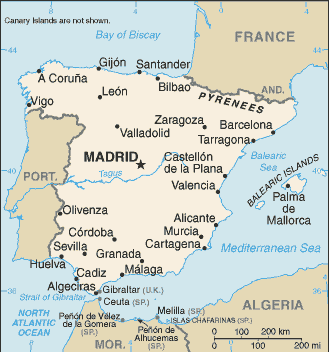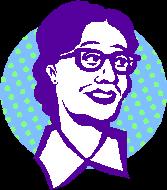Monday, November 24, 2008
'Scrubs' star Zach Braff falls in love with Tel Aviv - Haaretz - Israel News
'Scrubs' star Zach Braff falls in love with Tel Aviv - Haaretz - Israel News Look who's visiting Israel.
Friday, November 21, 2008
Freedom's Feast - Introducing Freedom's Feast
Freedom's Feast - Introducing Freedom's Feast
"Since 2001, Freedom’s Feast has helped make Thanksgiving a more fun, meaningful, and memorable American experience for families across the country.
Endorsed by educators, parents and civic leaders, Freedom’s Feast is a flexible, activity-filled program designed for a universal audience. Guests read from America's founding documents, learn fun facts, sing patriotic songs, and personalize the celebration in countless ways. We hope Freedom’s Feast will inspire you to create a few new Thanksgiving traditions of your own!"
The website has a terrific ten-minute service to use at Thanksgiving dinner.
"Since 2001, Freedom’s Feast has helped make Thanksgiving a more fun, meaningful, and memorable American experience for families across the country.
Endorsed by educators, parents and civic leaders, Freedom’s Feast is a flexible, activity-filled program designed for a universal audience. Guests read from America's founding documents, learn fun facts, sing patriotic songs, and personalize the celebration in countless ways. We hope Freedom’s Feast will inspire you to create a few new Thanksgiving traditions of your own!"
The website has a terrific ten-minute service to use at Thanksgiving dinner.
Thursday, November 20, 2008
Monday, November 3, 2008
The Virtual Jewish History Tour - Spain

Beginnings of the Jews in Spain, through the period of Muslim Rule,
selected from: The Virtual Jewish History Tour - Spain
Introduction
The history of Spanish Jewry dates back at least two thousand years to when the Romans destroyed the Second Temple in Jerusalem, and brought Jews with them back to Europe. Since that time, the Jews of Spain (Sephardim) have experienced times of great oppression and hardship, as well as periods of unprecedented growth and renewal.
Roman Rule (ca. 205 BCE-Early 5th Century)
While the area of modern-day Spain (formerly a collection of kingdoms which included Castile, Aragon, and Catalonia) was still controlled by the Holy Roman Empire, the Catholic Church convened at the Council of Elvira where they issued 80 canonic decisions, many of which were intended to ostracize the Jews from the general Spanish community. For example, Canon 49 prohibited Jews from blessing their crops, and Canon 50 refused communion to any cleric or layperson that ate with a Jew.
Visigoth Rule (5th Century-711)
During the early 5th century, the Visigoths captured the Iberian Peninsula from Roman rule. While initially anti-Christian, the Visigoths later converted to Christianity and adopted many of the previous laws that existed during Roman rule. Under the rein of Toledo III, children of mixed marriages were forcibly baptized and Jews were barred from holding public office. The situation got progressively worse and, in 613, the Jews were ordered to convert to Christianity or face expulsion. Though many Jews chose to leave rather than convert, a large number of them still practiced Judaism in secret for centuries. In 633, the Fourth Council of Toledo, convened to address the problem of crypto-Judaism (Jews who converted to Christianity to escape persecution, yet observed Jewish law in private. The people who practiced this were also know as Marranos). While opposing compulsory baptism, the Council decided that if a professed Christian was determined to be a practicing Jew, his or her children were to be taken away and raised in monasteries or trusted Christian households.
Muslim Rule (711-11th Century)
In the 8th century, the Berber Muslims (Moors) swiftly conquered nearly all of the Iberian Peninsula. Spain flourished under Muslim rule, and Jews and Christians were granted the protected status of dhimmi. Though this still did not afford them equal rights with Muslims, during this “Golden Age” of Spain, Jews rose to prominence in society, business, and government.
The conditions in Spain improved so much under Muslim rule that Jews from all across Europe came to live in Spain during this Jewish renaissance. There they flourished in business and in the fields of astronomy, philosophy, math, science, medicine, and religious study. The same period also witnessed a resurgence of Hebrew poetry and literature from a traditional and liturgical language to a living language able to be used to describe everyday life. Among the early Hebraists of the time were Yehudah HaLevi who became known as one of the first great Hebrew poets, and Menahem ben Saruq who compiled the first ever Hebrew dictionary.
The intellectual achievements of the Sephardim (Spanish Jews) enriched the lives of non-Jews as well. In addition to contributions of original work, the Sephardim translated Greek and Arabic texts, which proved instrumental in bringing the fields of science and philosophy, much of the basis of Renaissance learning, to the rest of Europe.
In the early 11th century, centralized authority based at Cordoba broke down following the Berber invasion and the ousting of the Umayyads. Rather than having a stifling effect, the disintegration of the caliphate expanded the opportunities to Jewish and other professionals. The services of Jewish scientists, doctors, traders, poets, and scholars were generally valued by the Christian as well as Muslim rulers of regional centers, especially as recently conquered towns were put back in order.
Yet, despite the Jews’ success and prosperity under Muslim rule, the Golden Age of Spain began to decline as the Muslims began to battle the Christians for control of the Iberian Peninsula and Spanish kingdoms in 722. The decline of Muslim authority was matched with a rise in anti-Semitic activity. In 1066, a Muslim mob stormed the royal palace in Granada, crucified Jewish vizier Joseph ibn Naghrela and massacred most of the Jewish population of the city. Accounts of the Granada Massacre state that more than 1,500 Jewish families, numbering 4,000 persons, were murdered in just one day. The conditions of Jews living on the Iberian Peninsula (Spain and Portugal) steadily began to worsen again. As a result, many people started fleeing the Iberian Peninsula to neighboring nations. Among those who fled were the famed bible commentators Abraham Ibn Ezra and Rabbi Yosef Karo (author of the Shulchan Aruch), as well as the families of Maimonides and philosopher Baruch Spinoza.
Labels:
sephardim,
seventh grade
As Israeli Elections Are Called, Livni Is Assessed - NYTimes.com
As new head of the ruling Kadima party, Tzipi Livni has failed to assemble a majority coalition that will preserve the current government and allow her to become prime minister. As a result, she has been forced to inform President Shimon Peres to call an early election, which will come in late winter 2009.
For more details, read on!
As Israeli Elections Are Called, Livni Is Assessed - NYTimes.com
 By ISABEL KERSHNER
By ISABEL KERSHNER
Published: October 26, 2008
JERUSALEM — Tzipi Livni, the foreign minister of Israel and head of the centrist Kadima Party, on Sunday officially asked President Shimon Peres to declare early elections, adding more uncertainty to her chances of becoming prime minister.
Article Permalink: http://www.nytimes.com/2008/10/27/world/middleeast/27israel.html?partner=permalink&exprod=permalink
For more details, read on!
As Israeli Elections Are Called, Livni Is Assessed - NYTimes.com
 By ISABEL KERSHNER
By ISABEL KERSHNERPublished: October 26, 2008
JERUSALEM — Tzipi Livni, the foreign minister of Israel and head of the centrist Kadima Party, on Sunday officially asked President Shimon Peres to declare early elections, adding more uncertainty to her chances of becoming prime minister.
Article Permalink: http://www.nytimes.com/2008/10/27/world/middleeast/27israel.html?partner=permalink&exprod=permalink
Herzl and the World Zionist Organization
In the past few classes, we have been studying about Theodor Herzl and his efforts to bring Jews from all over the world together in order to fulfill their dream of a Jewish homeland. The belief that Jews are a people who need a homeland of their own is called "Zionism." Herzl founded an group called the World Zionist Organization (or WZO) that still works today supporting Israel, helping Jews immigrate to Israel, and educating about Judaism.
The WZO holds meetings called World Zionist Congresses, to which every Jewish community sends representatives. The first World Zionist Congress met in 1897, in Basel, Switzerland. Each World Zionist Congress meeting allows Jews to set policies and elect officers to carry out their work of protecting, supporting, and educating Jews throughout the world and especially Israel.
The sixth graders just learned about two specific decisions of the World Zionist Congress. In class, we learned about Hatikvah, the Israeli national anthem, and how it was chosen as a way of unifying Jews and expressing their hopes for a homeland. We also studied the Sixth World Zionist Congress (1903), where they had to decide whether they should accept a British proposal offering Jews a refuge in Uganda. You can find the short play, "Zionism without Zion", here.
Some of you might like to read some of Herzl's writings. You can find a selection from his novel Alteneuland (Old-New Land) here.
The WZO holds meetings called World Zionist Congresses, to which every Jewish community sends representatives. The first World Zionist Congress met in 1897, in Basel, Switzerland. Each World Zionist Congress meeting allows Jews to set policies and elect officers to carry out their work of protecting, supporting, and educating Jews throughout the world and especially Israel.
The sixth graders just learned about two specific decisions of the World Zionist Congress. In class, we learned about Hatikvah, the Israeli national anthem, and how it was chosen as a way of unifying Jews and expressing their hopes for a homeland. We also studied the Sixth World Zionist Congress (1903), where they had to decide whether they should accept a British proposal offering Jews a refuge in Uganda. You can find the short play, "Zionism without Zion", here.
Some of you might like to read some of Herzl's writings. You can find a selection from his novel Alteneuland (Old-New Land) here.
Labels:
Herzl,
Israel,
sixth grade,
Zionism
Subscribe to:
Comments (Atom)
